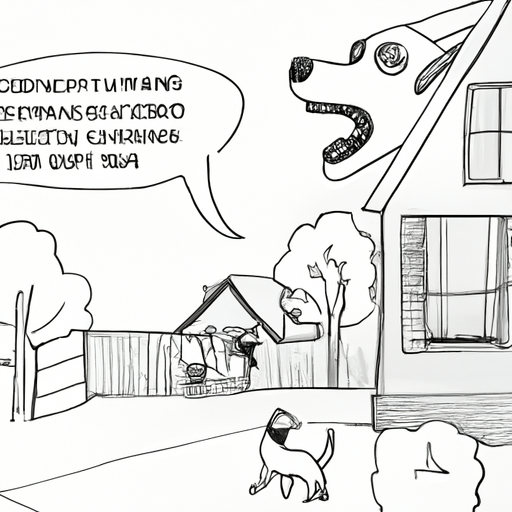As a caregiver, you may often find yourself facing challenges that need your attention and understanding. One of such challenges could be your dog’s incessant barking. It’s not just noise; it’s a language you need to decipher. Let’s delve into this issue and explore some potential solutions.
Understanding Why Dogs Bark
Just like humans, dogs communicate through sound. Barking can mean different things depending on the situation, the breed, and even the dog’s personality. Here are some common reasons why dogs bark:
- Attention: Dogs often bark to get your attention.
- Boredom: If left alone for long periods, dogs can get bored and start barking.
- Fear: Loud noises, unfamiliar people or animals can scare dogs and trigger barking.
- Separation Anxiety: Dogs with separation anxiety bark excessively when left alone.
How to Stop Your Dog from Barking: General Tips
You can’t expect your dog to stop barking entirely – it’s their way of communicating, after all. But you can reduce non-stop barking with these tips:
- Don’t Yell: Yelling might make your dog think you’re joining in, which can exacerbate the problem.
- Positive Reinforcement: Reward your dog when they stop barking on command.
- Distract Them: Use toys or treats to divert their attention.
Training Techniques
Training your dog to stop barking non-stop requires patience and consistency. Here are some tried and tested techniques:
Consistent Commands
Use a calm, but firm command such as “quiet” or “enough” when your dog starts barking. Reward them when they obey.
The ‘Bark/quiet’ Method
This involves allowing or even encouraging your dog to bark, then using the “quiet” command to stop them. Again, rewards are crucial here.
Professional Help
If you’re struggling to manage your dog’s barking, consider seeking professional help. Trainers and behaviorists can provide expert guidance tailored to your dog’s needs.
Products to Help Control Barking
Several products on the market can help control barking. Here are a few:
| Product | Description |
|---|---|
| Bark Collars | Use mild electric shock or vibrations to discourage barking. |
| Ultrasonic Devices | Emit a high-pitched sound to distract and deter barking. |
| Calming Treats | Contain natural ingredients known to reduce stress and anxiety. |
Remember, these are only aids. Training and understanding should be your primary tools.
When to Consult a Vet
If non-stop barking is a new behavior or if it’s accompanied by other unusual behaviors, it may indicate a health problem. In such cases, consult with a vet immediately.
The Role of Breed and Age
Breed can play a significant role in a dog’s barking habits. Some breeds bark more than others, and puppies are generally more vocal than older dogs. Understanding your dog’s breed and age can help you handle their barking better.
FAQs
Q: Can I stop my dog from barking completely?
No, barking is a natural behavior for dogs. The goal is not to stop it entirely but to control excessive barking.
Q: Are some breeds more likely to bark than others?
Yes, some breeds are more vocal than others. Researching your dog’s breed can give you insights into their barking habits.
Q: What if my dog won’t stop barking at night?
Night-time barking could be due to fear, boredom, or a need to use the bathroom. Try using a night light or leaving them with a familiar scented item for comfort.
Q: Is it okay to use a bark collar on my dog?
While bark collars can be effective, they should be a last resort. Always make sure to use one that is humane and safe.
Remember, understanding and patience are key when dealing with a dog that barks non-stop. With the right approach, you can ensure a peaceful and happy environment for both you and your dog.



